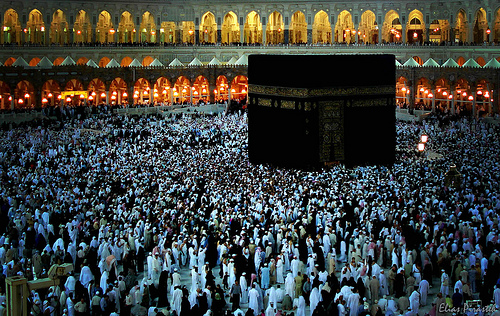SAUDI ARABIA. The regime of Saudi Arabia is always in the mire of analysts. The state is one of the leading oil producers and exporters in the world and plays a major role throughout the Arab world. Therefore, any potential change in the Saudi Kingdom attracts the precise interest of international community.
To analyse present-day Saudi Arabia, it is important to take into consideration the events of the last three to four years. First, foreign policy is in an appalling shape. It experienced several slumps in losing the channel of influence on Egypt and North Africa overall after the downfall of Mubarak’s regime. Furthermore, the Riyadh was dragged into the “Syrian swamp”, which seems to be a heavy burden for the Saudi regime. The current situation gives an impression that Riyadh is gradually being excluded from the main processes taking place in the Islamic world, which is defined today more and more by Turkey, Iran, and Qatar. This, in turn, undermines the Saudi Arabian position of regional leader and puts in doubt the state of affairs and style of governance in the Saudi kingdom.
Meanwhile, the national level is also rife of covert internal cataclysms. The main unsettled issue in the Kingdom concerns (the absence of) modernization, which, in turn, affects negatively the future of the monarchy and the integrity of the state. Many experts suggest that the “theocratic” ideology, which allowed the formation of the largest Arabian state and being the basis of its existence, is the main factor thwarting modernization.
In this respect, Wahhabism, the official and the dominant form of Sunni Islam in the Kingdom, embodies harsh fundamental doctrine, which has extremely negative attitude to all the innovation in every sphere of life. In general, secular and religious authorities control the theocracy in Saudi Arabia in order to balance the scale of powers within the state. Although the king is considered the leader of the Kingdom, the power of the descendants of Muhammad ibn Abd-al Wahhab (the Arabic scholar that helped to establish the first Saudi state) is extremely high.
The founder of the present state of Saudi Arabia, the first King Abdulaziz al Saud (Ibn Saud), took forward steps to displace the balance between religious and secular authority in favour of the latter. This process goes on continuously throughout the lifetime of the House of Saud (dynasty of the present King Abdullah), but to this day, the ideological restrictions hamper the modernization of the country.
At the same time, the overdependence on oil and gas and inappropriate climate conditions aggravate building a modern “real” economy and therefore some experts stress the point on the necessary farsighted reforms to be taken by the government to lay foundations for the post-oil era. Thus, the creation of a modern and more successful than oil industry for the ruling dynasty is a question of its survival in the near future.
Besides, the Saudi state seems to need greater political openness, stop oppressing public dissent and ease the control over the population. Saudi Arabia is allegedly one of the most retrospective and conservative countries in the world. In this regard, the current King Abdullah chose the line to imply policies of gradual movement heading for reforms, so as not to set against the conservative establishment. Moreover, in face of growing public discontent, he attempted to settle the political demands (Shia minority integration, constitutional monarchy) moving them into the social sector, which is less dangerous for the governing family.
Nonetheless, these arrangements are not enough for the Saudi kingdom to be on the trail of democracy. At the same time, to expect real drastic reforms would be futile, as they would threaten the monarchy.
Even so, the perilous wind for the House of Saud may blow from the other direction as concurrently the considerable part of mass media identifies the real menace for the ruling dynasty not in the population but rather within the al Saud family itself. It proves to be so as the situation with the House of Saud is another significant concern due to unsettled question of power succession while media outlets bring to light the already waging out of sight war within the different branches of the royal family.
It is noteworthy to underscore that the first generation of Saudi rulers is coming to its end. The two left sons (besides King Abdullah) of Ibn Saud are the current Crown Prince Salman and the second deputy PM Muqrin ibn Saud. However, Salman is allegedly heavily ill (there are growing rumors about his worsening health situation) and Muqrin has a mother of Yemenite origin, which is considered as his man drawback. In addition, while before among the political candidates were only sons of Ibn Saud, now the number of probable contenders to throne ascent include ibn Saud’s grandchildren. The analysts, in turn, admit that while the powerful clans within the ruling dynasty lead their struggle covertly, there are no clear signs that any “candidate” has an overwhelming advantage.
Consequently, if King Abdullah does not succeed to arrange succession politics within the al-Saud clan, the family will be poorly placed to address the substantial challenges the Kingdom is going to face. This might be true, as Saudi citizens will not wait forever for the royal family to get its House in “order”; and the demolishing waves of the Arab spring are still to fully reach the shores of Arabian Peninsula.

